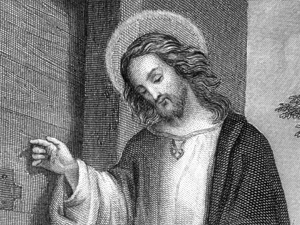 Recently, I went back to work part-time at a fabric store as the Education Coordinator in charge of the classes, schedules, teaching the sewing and quilting classes, and seeing to various other educational needs of the store. The other day, while talking with a couple of ladies about the seasonal fabrics at the store and especially the Christmas fabrics, one lady spoke up proudly that she doesn’t and has never celebrated Christmas, nor Easter for that matter.
Recently, I went back to work part-time at a fabric store as the Education Coordinator in charge of the classes, schedules, teaching the sewing and quilting classes, and seeing to various other educational needs of the store. The other day, while talking with a couple of ladies about the seasonal fabrics at the store and especially the Christmas fabrics, one lady spoke up proudly that she doesn’t and has never celebrated Christmas, nor Easter for that matter.
I thought about the upcoming changes to the Roman Missal and the part where the Latin translation for the word we have so long heard as “all” is actually “many.” So during the “Institution Narrative” which are the words of Christ during the Last Supper, starting on November 27th, the priest will say “which will be poured out for you and for many” replacing the old translation of, “It will be shed for you and for all…”
What this is really saying is what I just witnessed in the above conversation, many will believe and accept Christ’s sacrifice, but there are those who will not and have made that choice freely and with thought. There is no changing this lady’s mind about Christmas, Easter, and Christ for that matter, so the sad possiblity exists that Christ’s pouring out His blood during His passion for the sins of the world will not affect this woman’s life. That “free will” factor plays here and God wants us to make our own choices.
This statement does not say that Christ does not love those beyond the “many” at all; He takes all who come to Him as children of God, but we must knock on the door and seek Him. Or at least be willing to crack the door and peek out when He knocks! Those who chose not to knock or who ignore His repeated invitation, have made their choice. We can try and try we may, but there are those who will not accept this gift of salvation and being realistic, we must recognize that in some cases there isn’t any word, book, or person that can change their minds, much less their hearts.
We must continue to pray for these souls — for while there is life there is hope for all, even though in the end it turns out to have been for many.



